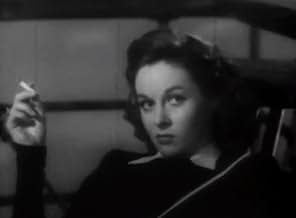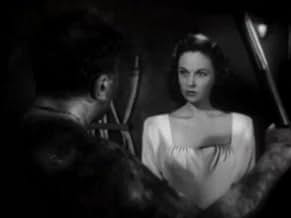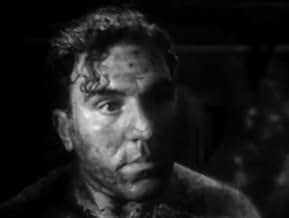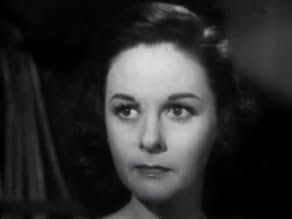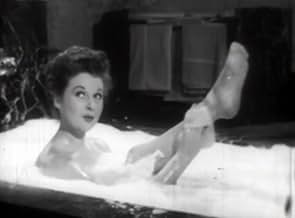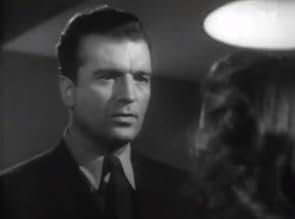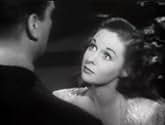During the 1940s, social class conflict is depicted when a spoiled socialite, traveling on a freighter, calls the ship's head stoker a hairy ape, provoking him into stalking the rich woman o... Read allDuring the 1940s, social class conflict is depicted when a spoiled socialite, traveling on a freighter, calls the ship's head stoker a hairy ape, provoking him into stalking the rich woman once ashore in New York.During the 1940s, social class conflict is depicted when a spoiled socialite, traveling on a freighter, calls the ship's head stoker a hairy ape, provoking him into stalking the rich woman once ashore in New York.
- Director
- Writers
- Stars
- Nominated for 1 Oscar
- 1 nomination total
- Aldo the Baron
- (uncredited)
- Third Engineer
- (uncredited)
- Minor Role
- (uncredited)
- Refugee Violinist
- (uncredited)
- Bar Patron-Brawler
- (uncredited)
- Nightclub Patron
- (uncredited)
- Goliath the Gorilla
- (uncredited)
- Saloon Brawler
- (uncredited)
- Minor Role
- (uncredited)
- Director
- Writers
- All cast & crew
- Production, box office & more at IMDbPro
Featured reviews
I caught this film on channel 13 wee hours on a Sunday morning.
When the film begins, Hank (William Bendix) is a merchant sailor who acts an awful lot like Popeye. He's big on fighting and drinking and working--and not much else. However, when a dreadfully spoiled and awful rich woman comes aboard the ship where he serves, she sees his ugly mug and she calls him a 'hairy ape'. This obnoxious comment, surprisingly, causes an existential crisis in Hank and he spends the rest of the film trying to figure out who he is...and whether or not he really is just a hairy ape.
As I mentioned above, the ending was changed and so all the shock and sting of the original play is gone. This makes the story quite tepid and along with surviving copies being lousy, this makes the film one that you could just as soon skip. Not terrible but I sure want to see a version that sticks closer to the original.
By the way, at the beginning of the film, they are in Portugal. So why are so many folks actually speaking Spanish?!
Among the more serious flaws are a too schematic, over-determined plot, sluggish pacing and murky photography. Obviously shot on a low budget by an 'independent' (or as close to it as one came during the studio days) none of this is a surprise. If the picture was good or had been more popular at the time, it would be better known today. The information provided by commentators here is interesting in the way it fills in the lefty backgrounds of many of the talents behind and in front of the camera, though all inexplicably fail to mention Dorothy Comingore. Famous for CITIZEN KANE, most of us have never seen her in any other picture and it has often been reported that her career suffered from the blacklist. This would make her, not director Santell or Bohnen perhaps this pictures' greatest victim of that injustice.
The liberties taken with O'Neill's play are pointedly sexual, and they make commercial sense, though they render the plot both melodramatic (in a different way than in the play) and ludicrous. Here, both Hank and Mildred are deeply affected by their first long look at each other, and the iconography of KING KONG and decades of melodramas have led us to expect Hank to menace and possibly rape and murder Mildred, the beautiful, disdainful rich bitch he cannot forget. Instead, there is wisdom, humor and a happy ending for all. But that isn't what the viewer is left with.
William Bendix makes a very strong impression as a bully with a frightening, unstoppable power and potential for violence. But his performance isn't quite as nuanced as his fan club here suggests. At the time, Susan Hayward made a bigger splash, garnering some good notices from critics and the film industry after languishing for years at Paramount as house ingénue and support to bigger stars. It was as a strong-willed, sometimes shrewish woman that she began to make her name, and here she is fresh, insolent and lovely, without the calculating hardness that had set in by the '50s. And Santell gives her (not Bendix) the single greatest and most haunting moment in the film and the best acting opportunity. It happens as Mildred enters the infernal engine room in her white dress and first spies Hank in all his grotesque power and virility. As she enters the closeup frame and the camera tracks in on her face, Hayward must suggest all that the script could not because of censorship restrictions. For that suspended few seconds we see she is transfixed, fascinated, aroused, repulsed -- disgusted as much by her own attraction to Hank as by his ugliness and brutishness. It is a revelation that seems to shatter both of them. The next scenes suggest they have had a kind of breakdown, that they are linked by destiny, are under a sort of sexual spell of what each represented to the other. This and not what follows provides the real emotional climax of the film.
It's an indelible movie moment, and the match-up of sheltered girl and animalistic male suggests the Blanche-Stanley relationship at the heart of the great A STREETCAR NAMED DESIRE. There too, the working class slob goads the archly feminine upper class lady. Except in STREETCAR it is the woman who is insecure and fragile and the man who is beautiful and arrogant. In THE HAIRY APE, rape seems a likely outcome because Santell daringly implies it is what both characters fear and long for. In STREETCAR it actually does come to pass and forms the climax of the play. It is as if Williams had seen HAIRY APE, was provoked, inspired and aroused by its one sexually galvanizing moment, but rethought the form and implications of the plot to serve his own art and suit his own demons
Not only does the movie give a different slant to the play, it also leaves out scenes (such as the communist scene) and it inserts others (beefing up Susan Hayward's role). The result is a good, watchable film albeit a little old-fashioned, but it's shocking to think that someone could see the movie and assume it gives a reliable idea of the play.
My glee at finally having this movie, was short lived when I noticed that, although the film had been restored, its technical quality looks as if it hadn't been--and needed to be. It's hard to imagine what this film looked like BEFORE it was restored!!
In addition, there is very little similarity between O'Neill's play and this movie--either in plot or dialogue. Any similarity between the two is purely superficial, and the movie leaves out the GUTS of O'Neill's play altogether. Perhaps that's why the movie made such little sense and hardly held together at all. Although both the PLAY and the MOVIE stress the way that the classes view each other, O'Neill's PLAY (written in 1922) has a healthy dose of anti-capitalism and a bar speech suggesting Marxism, even if only by a comical drunk. The 1944 movie seems to have expunged any hint of these references.
Near the end of the PLAY, fellow workers tell 'Yank' to get even with Mildred's wealthy father by joining the Wobblies or the Industrial Workers of the World (IWW). No one mentions this to 'Hank,' (William Bendix): unlike in the play, Hank never tries to join the local I.W.W. (Even the protagonist's name is changed from 'Yank' in the play to 'Hank' in the MOVIE. The name 'Hank' could be short for Harry, suggesting 'Hairy' in the name of the play.)
In the PLAY, Mildred willfully does volunteer social work in Manhattan's Lower East Side and is ridiculed by her aunt for 'slumming.' In the MOVIE, Mildred (Susan Hayward), pretends to do social work--in Lisbon, while having fun instead. Here, her longtime friend and companion, Helen (Dorothy Comingore), is the real do good-er who chides Mildred for her not doing the work assigned to her in Lisbon. In the PLAY, Mildred's critic is her aunt, who says that her good works just make the lower class feel worse. Again, there are complete changes in characters and motives from the aunt in the PLAY to the friend in the MOVIE!!
In the PLAY, Mildred is NOT the vixen-like villain that she is in the MOVIE. True, Hank is arrested and jailed for a disturbance outside of Mildred's 5th Avenue apartment, but not for the same reasons as in the movie. After being jailed, he is put in cell alone, not with other prisoners who talk to him about labor unions (as in the PLAY).
In the MOVIE, after he is released from jail, he visits the gorilla cage, notices that the gorilla likes to smash things, and then sneaks into Mildred's apartment to 'smash her.' In the MOVIE, we don't know how he gets any revelation by 'seeing how the other half lives' and deciding that their lives are just like his. That is, if he doesn't 'smash her,' as his voice-over tells him to do, we don't know why. Most importantly, the final scene of the PLAY is at the gorilla's cage of the carnival. The MOVIE just kind of throws that scene in earlier--BEFORE he sneaks into Mildred's apartment to 'smash her.'
While there ARE SOME common scenes between the play and the movie, the MOVIE SO mixes up the intent of the PLAY that I am not sure why O'Neill--who must have had to agree with some of the movie content--even agreed to let the movie be shown as a representation of the PLAY.
Did you know
- TriviaThe failure of the original copyright holder to renew the film's copyright resulted in it falling into public domain, meaning that virtually anyone could duplicate and sell a VHS/DVD copy of the film. Therefore, many of the versions of this film available on the market are either severely (and usually badly) edited and/or of extremely poor quality, having been duped from second- or third-generation (or more) copies of the film.
- Quotes
Hank Smith: Dames, huh? That's a lot of tripe. They'll double cross you for a nickel or even nothing. Treat 'em rough - that's me, the whole bunch of 'em. They don't belong. They don't amount to nothing. Who makes the old tub go? It's us guys. Me! Me! I make her go.
Details
- Runtime
- 1h 32m(92 min)
- Color
- Aspect ratio
- 1.37 : 1

